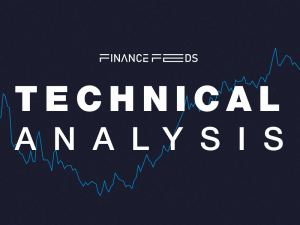ASIC announces regulatory costs ahead of CFD trading restrictions
The Australian regulator “is acutely aware of the challenges facing many businesses due to COVID-19”, but made no reference to the challenges FX and CFD brokers will face amid the leverage restrictions.

ASIC has published the 2019-20 Cost Recovery Implementation Statement (CRIS), which provides regulated entities with details of ASIC’s forecast regulatory costs and activities by industry and subsector. The total cost of the regulatory operation is $320.331 million.
The regulator detailed that the Market Infrastructure and Intermediaries sector has a total operating expenditure of $53,266 million. Surveillance costs for the sector are the highest, at $13,083 million. By adding the allowance for capital expenditure and adjustments, ASIC comes to a total cost of $62. million to be recovered by levy.
Securities dealers cost $1.391 million, Over-the-counter (OTC) traders cost $9.661 million, and retail OTC derivatives issuers cost $10,384 million to regulate.
ASIC is currently supervising 1,030 securities dealers, 77 over-the-counter (OTC) traders, and 99 retail OTC derivatives issuers.
Securities dealers pay a minimum levy of $1,000 plus $2.71 per $1 million of annual transaction turnover. Over-the-counter (OTC traders pay a minimum levy of $1,000 plus $4,011 per FTE. OTC derivatives issuers pay a fixed amount of $108,084.
“ASIC is acutely aware of the challenges facing many businesses due to COVID-19 and is committed to working with regulated entities facing difficulties paying industry funding levies. ASIC will consider waivers due to the impact of COVID-19 on a case-by-case basis”, said the announcement.
The announcement comes ahead of the new CFD trading rules which will come into effect by the end of March. Leverage will be restricted to a point that average trading volumes are expected to drop by about one-third – taking from European brokers’ experience with ESMA’s new leverage rules.
The regulator labeled CFD products as ‘detrimental to retail clients’ to justify the restrictions to marketing methods and leverage in Australia.
From 29 March 2021, ASIC’s product intervention order will:
restrict CFD leverage offered to retail clients to a maximum ratio of:
30:1 for CFDs referencing an exchange rate for a major currency pair
20:1 for CFDs referencing an exchange rate for a minor currency pair, gold or a major stock market index
10:1 for CFDs referencing a commodity (other than gold) or a minor stock market index
2:1 for CFDs referencing crypto-assets
5:1 for CFDs referencing shares or other assets
Brokers will also have to standardize CFD issuers’ margin close-out arrangements that act as a circuit breaker to close-out one or more a retail client’s CFD positions before all or most of the client’s investment is lost. Protection against negative account balances and end all trading credits, rebates, or gifts to customers.









